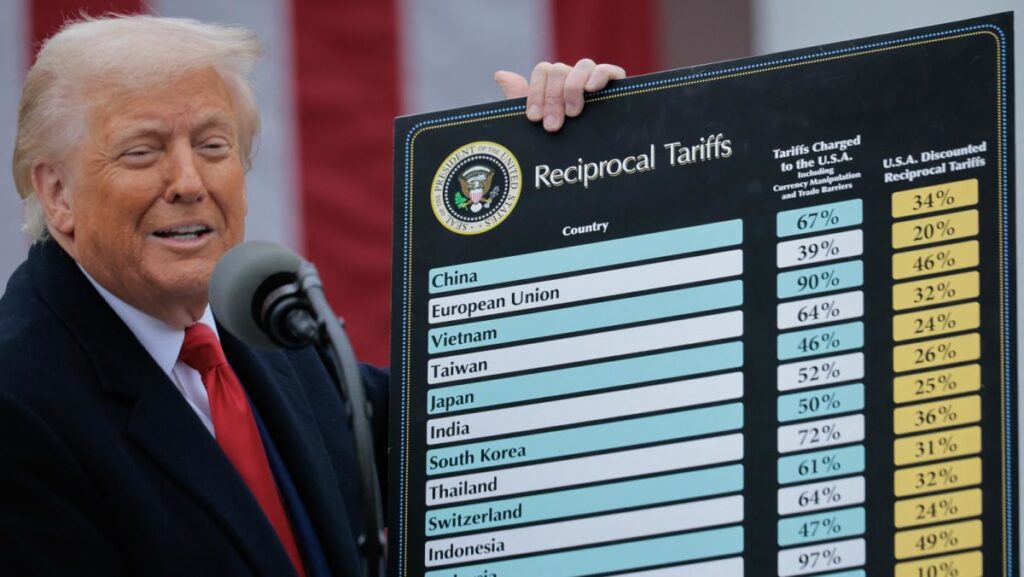What will be the impact?
Since Trump first announced his trade plan in February, economists have said that higher tariffs could raise consumer prices and slow economic growth in the US.
These warnings continued after Wednesday’s announcement.
OCBC managing director for investment strategy Vasu Menon said the tariffs were likely to cause the US economy to slow down more than expected, and inflation to stall or rise.
But the US may not slip into a recession if Trump shows openness to negotiations, he added.
“Some comfort can be found from the fact that the White House is fully aware that an aggressive tariff agenda that hurts US growth badly, could also hurt the Republican party’s chances in the mid-term elections,” said Mr Menon. “This may see Trump dialling back on some tariffs in time.”
The tariffs also raise concerns about inflation, said JP Morgan Asset Management’s chief market strategist for Asia-Pacific Tai Hui.
Inflation could be impacted as the US struggles to increase manufacturing capacity and supply chains pass on costs to consumers, he said.
“US consumers may cut back on spending due to pricier imports, and businesses might delay capital expenditures amid uncertainty about the tariffs’ full impact and potential retaliation from trade partners,” he added.
DBS Group’s senior foreign exchange strategist Philip Wee said in a note that the reciprocal tariffs on emerging Asian economies were “notably high”.
This sends a message that the US is not just targeting China directly, “but also indirectly blocking the ‘China Plus One’ strategy many companies use to diversify supply chains to circumvent US tariffs”.
This is not the end of the road, and there’s still room for “negotiation, retaliation and further potential escalation”, said OCBC chief economist Selina Ling and ASEAN economists Lavanya Venkateswaran, Ahmad A Enver and Jonathan Ng.
In Southeast Asia, they expect Vietnam’s growth to be the hardest hit by tariffs, followed by Thailand and Malaysia, with Indonesia and India more insulated.
In an earlier note in March, DBS Group senior economists Chua Han Teng and Radhika Rao said that aside from the direct hit from higher tariffs, a second-order impact on Southeast Asian countries could also come from slower growth in the region’s key trading partners – China, and the US themselves.



